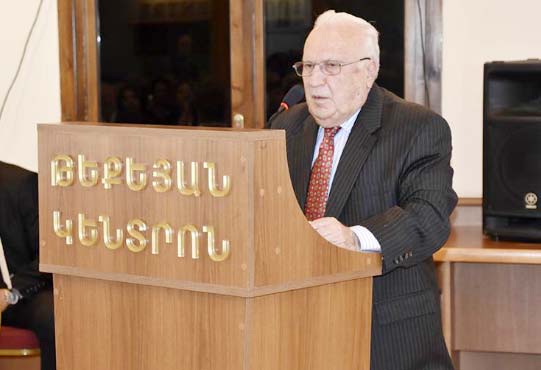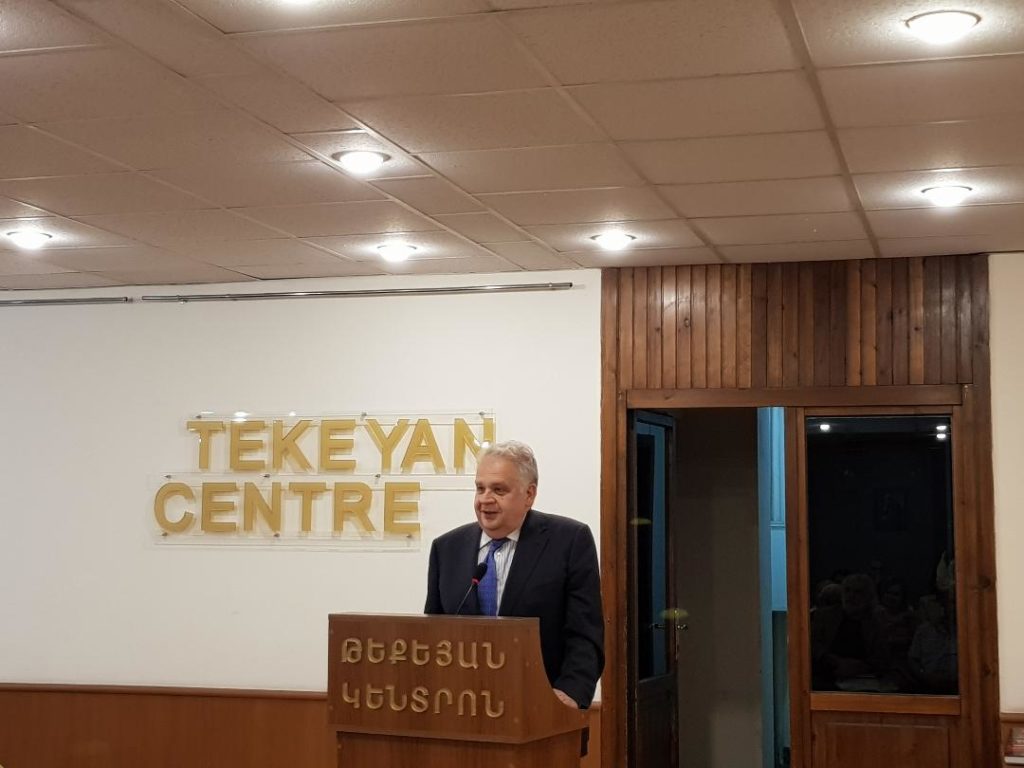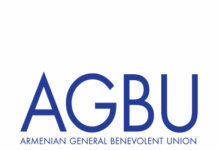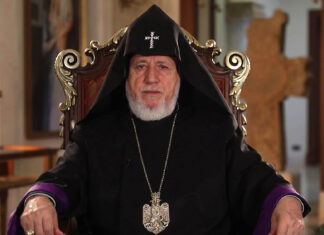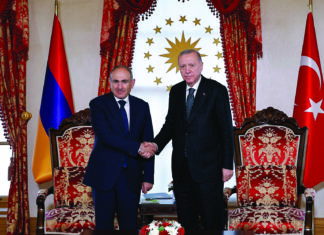YEREVAN (Azg, Baikar) – Two presentations of Edmond Y. Azadian’s newly published Armenian-language volume, Echer goruseal yev angorusd [Lost and Unlost Pages], were recently held in Armenia, first on September 25 at the Tekeyan Center and then on September 30 at Yerevan State University. This new volume is the continuation of the volume he published last year, Zhamanagi yev zhamanagagitsneru hed [With My Time and Contemporaries].
Azadian, familiar to subscribers of the Mirror-Spectator as the senior editorial columnist of the paper, is well known to Armenian readers as a literary critic and public figure. He is a overseas member of the Academy of Sciences of the Republic of Armenia who has been given honorary doctoral degrees by both Yerevan State University and the Khachatur Abovyan Armenian State Pedagogical University, and is a member of the Writers Union of Armenia.

Those present at the Tekeyan Center celebration included Rector Ruben Mirzakhanyan of the Khachatur Abovyan Armenian State Pedagogical University, Dean of the Department of Philology of Yerevan State University, President of the Writers Union of Armenia Eduard Militonyan, Secretary of the Writers Union Petros Demirchyan, literary critic Aleksandr Topchyan, Hamshen Armenian specialist Sergey Vardanyan, satirical cartoonist Sukias Torosyan, and various guests from Montreal, Canada.
Hagop Avedikian, editor of the newspaper Azg and chairman of the Armenian Democratic Liberal Party, served as master of ceremonies. He said that Azadian is among the rare group of people who create, write and publish books simultaneously. He said Azadian writes editorials for two newspapers, works diligently on behalf of his political party, and does many other labors, yet despite all these burdens, has managed to publish two books during the course of one year.
Demirchyan, while evaluating Azadian’s characteristics, compared him with Yeghia Demirjibashian. Literary critic Topchyan spoke words of praise concerning Azadian, calling him a writer of wisdom and courage, though he has not yet read this new volume. Militonyan in his turn noted that writers like Azadian are true classical figures from whom one can learn every day.



